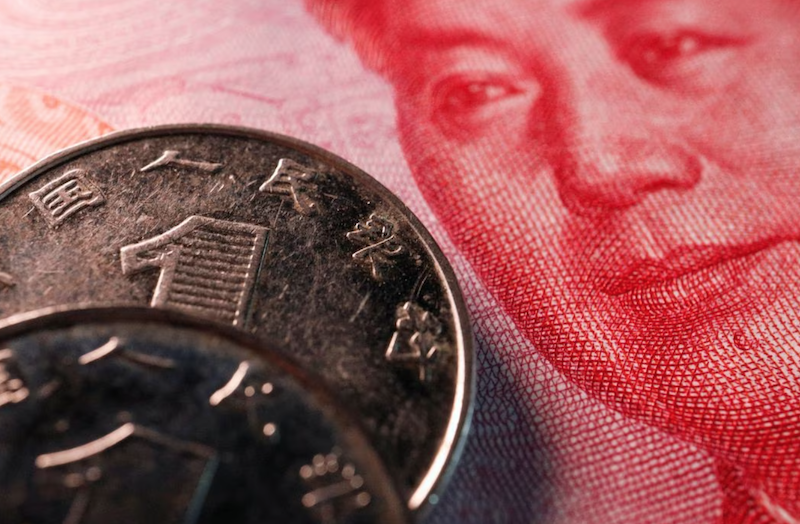In its latest move to duck the dollar and push towards the internationalisation of the yuan, China is set to price several Hong Kong-listed stocks of its companies in its home currency.
Starting Monday, shares of Alibaba and Tencent will be among 24 stocks which will be priced and traded in both the yuan and the Hong Kong dollar under the Dual Counter Model on the Hong Kong stock exchange (HKEX).
The scheme will target overseas investors with yuan holdings initially, but will later include mainland investors via the Hong Kong-China Stock Connect link-up. Offshore yuan deposits in Hong Kong alone are estimated at some 833 billion yuan ($117 billion).
Also on AF: Global Economy Showing Signs of De-Dollarisation, Says JPMorgan
Fund managers say the step reflects Beijing’s desire to expand the use of yuan outside China and provide another avenue for yuan-denominated investment, thus reducing the risk of capital outflows chasing higher yielding currencies such as the US dollar.
“China is pushing yuan internationalisation to avert geopolitical risks and reduce reliance on the dollar, and for that purpose, you need wider use of the Chinese currency,” said Ding Wenjie, strategist of Global Capital Investment at China Asset Management Co (ChinaAMC).
Ding said the scheme is a major milestone and expects the model to be expanded in future, beyond stocks to bonds and even alternative assets, boosting overseas asset pools denominated in yuan.
How it will work
Under the dual counter arrangement, investors can choose to trade a stock either using Hong Kong dollars via the HKD counter, or yuan via the RMB counter. Market makers will provide liquidity and minimise price discrepancies.
Most of the first batch of stocks eligible for yuan trading – which include AIA Group, Sun Hung Kai Properties and Hang Seng Bank – are not listed in China.
Fund managers expect a lukewarm interest in the yuan counters initially, given near-term risks including a weakening yuan and wobbly stocks as China’s economy struggles. But they expect demand to pick up over time.
“Mainland investors, including mutual fund companies like us, have genuine incentives to trade Hong Kong stocks in yuan,” said Ding.
“Our fund returns and dividends are priced in yuan, so using the RMB counter can remove forex exchange costs, and shield us from currency volatility.”
There are many other reasons to trade in yuan, said David Friedland, Asia Pacific managing director at Interactive Brokers, which offers yuan-trading services.
“There’s lot of political uncertainty these days so you may want to hold yuan rather than US dollars, or the Hong Kong dollar, which is pegged to the US dollar.”
Why it matters
The HKD/RMB scheme comes amid a steady stream of bilateral yuan-denominated deals China has struck with trading partners, from Chinese oil purchases in the Middle East, to commodities trade with partners from Brazil to Russia.
The US dollar remains the dominant global currency, accounting for 42% of global payments. The yuan’s share is just 2.29%, but is up from 1.95% two years ago.
A significant breakthrough in China’s efforts to promote use of the yuan came this month, when Pakistan paid for its first government-to-government import of discounted Russian crude oil in yuan.
“When a currency is internationalised, it’s not only used in trade, physical goods, or services. It also has to be parked in investment vehicles,” said Dong Chen, Head of Asia Macroeconomic Research at Pictet Wealth Management.
For foreign investors with yuan holdings, “buying shares in Hong Kong without really going into mainland China will be a much, much easier way to park your holdings of this currency,” he said.
- Reuters, with additional editing by Vishakha Saxena
Also read:
China Settles First LNG Trade in Yuan in Latest Hit to Dollar
China Drops Dollar for Yuan in $88bn Russia Commodity Trade
Yuan Overtakes Dollar For 1st Time in China Cross-Border Trade
China’s Yuan is Now the Most Traded Currency in Russia
China’s Moves to Boost Use of The Yuan Starting to Pay Off
Sanctioned Russia Pays Sakhalin Oil Dividends in Yuan – Nikkei
























